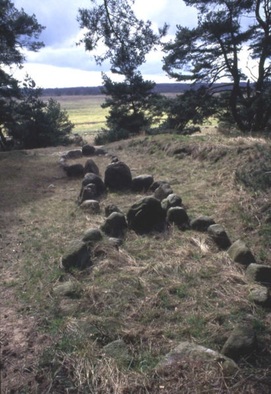I asked my husband to take the same test a couple of months ago, again just mostly for fun. I've been researching his family tree for about two years. Honestly, I wasn't expecting much diversity in his genetic make-up. The vast majority of his ancestors were from France and Germany, with a few branches from Holland, Switzerland, and Austria, ALL of which are located in Ancestry.com's "Central European" region. Here are his results:
I've been reading a lot of genealogy blogs and message boards pertaining to Ancestry's DNA test and it appears as if my husband is not the only one with the "Scandinavian Surprise." In fact, it seems to be quite common for people with documented ancestors from the British Isles and many parts of Europe to discover these Scandinavian signatures in their DNA, even though they have no knowledge of ancestors from these northern regions. People have claimed that something must be amiss in Ancestry's database or methodology. Ancestry is very forthcoming about the fact that their knowledge of genetic markers and database of samples from throughout the world is continually growing, and that the breakdown of your DNA test may change in the future, depending on what they learn. After doing some research, though, I think that my husband's results are definitely possible when I consider the close geographic proximity between Germany and Scandinavia and the history of contact between their peoples. Add to that the randomness with which DNA is passed on through the generations and these results aren't so far-fetched. This blog post from The Genetic Genealogist does a nice job of explaining why your results may not turn up as you had originally thought they would.
For several centuries about a thousand years ago, pretty much all parts of coastal Northern Europe and the British Isles were subject to some sort of Viking influence, whether it be permanent settlements or battle/raiding events. Just within the past couple of years, Silasthorp, a moderately-sized Viking settlement, was unearthed in northern Germany near the border with Denmark. Experts think that this settlement lasted for 300 years. A Viking burial ground, known as Altes Lager Menzlin, has been found on modern-day Germany's northeastern coast. And there is evidence that Germany's entire northern coast was subject to frequent raids by the Vikings, even as far south as Hamburg, which was raided in the year 845.
So, this is second DNA test our family has taken and in both occurrences the unexpected results have driven me to learn a little more about the history of our ancestors' homelands. The knowledge I've gained makes the test worth it to me, even if it doesn't lead to finding new ancestors or distant cousins.



